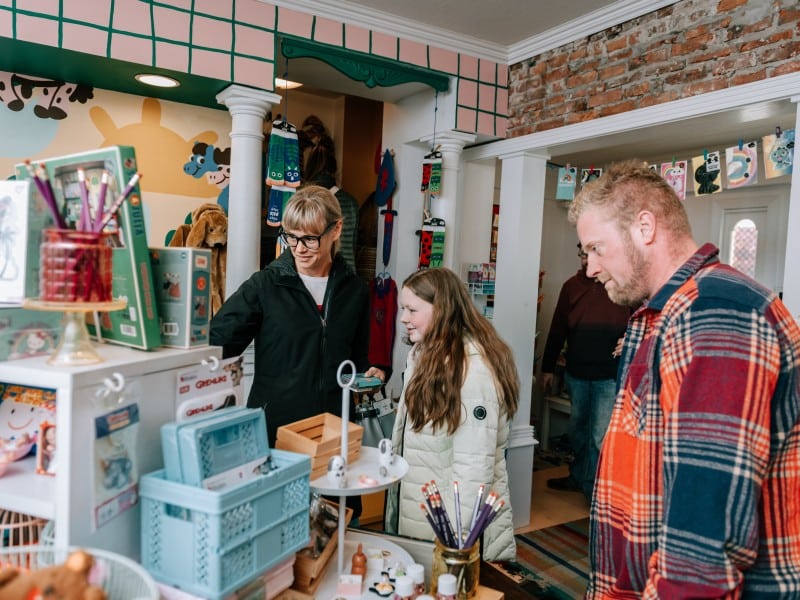Partner Partner Content How can businesses and educators solve the skills gap in manufacturing and construction industries?
The MadeByMe Coalition in Fort Wayne is bringing local leaders together to boost interest in the skilled trades.
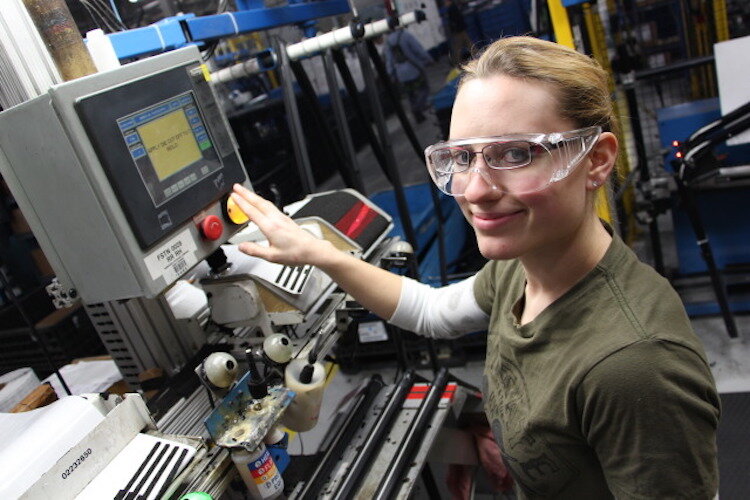
QuikCut is a metal fabrication company on Fort Wayne’s east side. The production floor buzzes with activity: the low static of welders at work. There’s the thud of machines shaping the metal, and the hum of high-tech lasers quietly zipping across thick sheets of steel to cut precise holes.
The company’s motto is seemingly everywhere: “Test our mettle.”
QuikCut takes on complex jobs from customers across the country, producing a range of items as small as spurs for cowboy boots, as large as entire apartments, and as widely used New York City subway benches.
But while its products hold up under pressure, the company is now facing a test of a different kind—workforce.
The pressure to replace aging skilled workers is bearing down on companies in the manufacturing and construction industries nationwide, and the question is: How will they fill the jobs of the future?
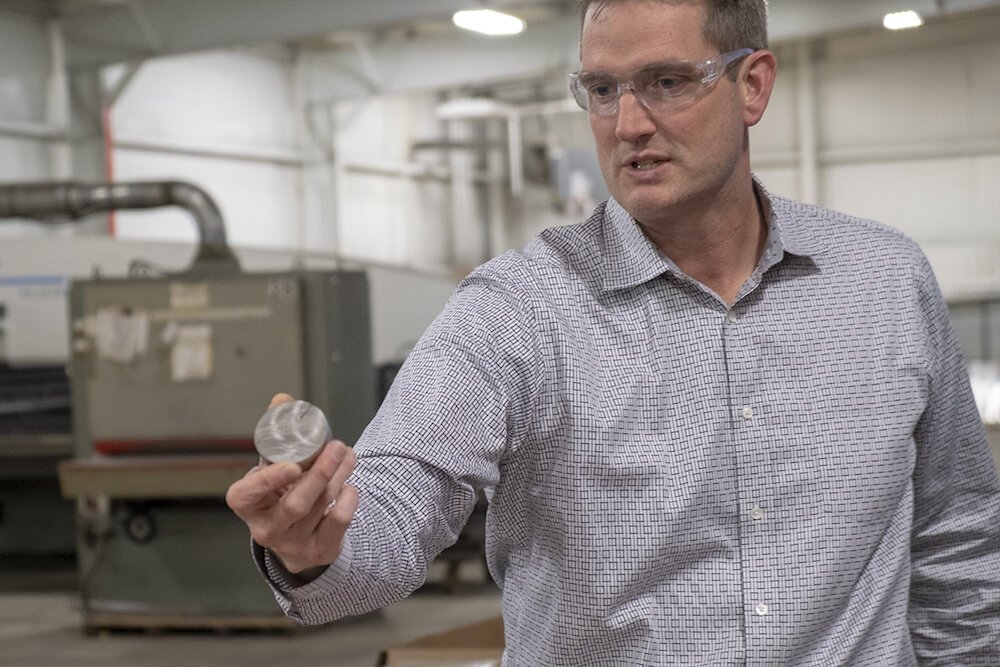
Ever the optimist, QuikCut CEO Mark Webb says, “I like to look at it as an opportunity.” Still, the numbers show there’s plenty of work to do.
In the next decade, the Indiana Department of Workforce Development (DWD) estimates there will be more than 23,000 manufacturing production job openings—and more than 10,000 construction job openings—in Allen County alone. These workforce vacancies are due to a combination of aging skilled-trades employees and not enough young people going into skilled-trades careers to make up for impending retirements.
In short, the skilled trades need an infusion of youth, but meeting this need has been elusive. Webb acknowledges that, historically, the trades have had a perception problem among students and their parents.
“There was a gap of time where everybody said you have to go to college, and that’s the only way you can be successful. But, that’s not true,” Webb says.
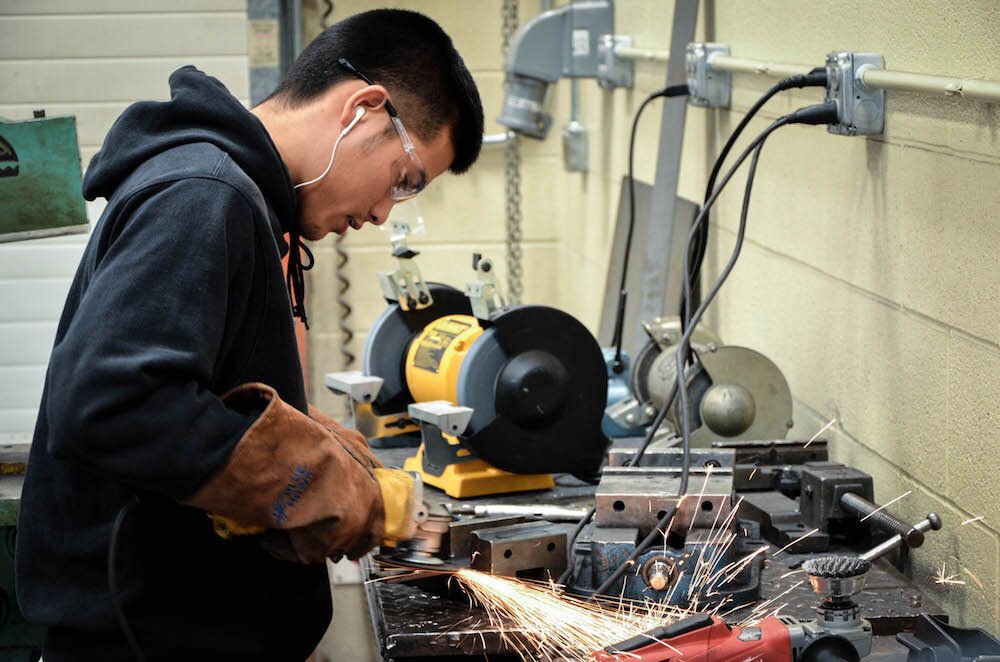
Local leaders have taken the PR effort into their own hands. In 2015, local businesses, educators, and community leaders formed the Gateway Coalition, with the goal of building interest in the skilled trades among students. Since the coalition’s start, business leaders have made presentations to more than 5,000 Allen County high school students.
Recently rebranded as the MadeByMe Coalition, the effort is now overseen by Greater Fort Wayne (GFW) Inc., and the message is picking up steam amid a changing economy.
For today’s high school students, skilled-trades careers can be as fruitful as college. According to a report by the Institute for College Access & Success on the 2016-2017 academic year, students attending four-year colleges in Indiana graduated with an average of $29,561 in student debt. Meanwhile, some manufacturers and construction companies offer paid apprenticeships—no trade-school experience required.
And the coalition’s audience isn’t just students. Thanks to a new externship program, Allen County educators can spend up to a week on-site with a local company, getting paid to learn about skilled careers. Dee Ramseyer, a math and engineering teacher at Carroll High School, recently completed an externship at Korte Does It All, Inc.
“The externship was very beneficial for me to be able to take information back to my fourth-year engineering kids,” Ramseyer says. “The largest eye-opener for me was how well the trades actually pay, without any kind of certification or degree.”
Salaries vary based on the job type and level of experience, but the average annual earnings (wages plus benefits) for manufacturing workers in Allen County is $76,226; for construction workers, $62,369.
With a renewed focus on the skilled trades, the spotlight falls on the career and technical education (CTE) found at places like the Fort Wayne Community Schools (FWCS) Career Academy.
“Students here earn industry certifications that are recognized by that industry,” assistant principal Mary McArdle says. “They earn college credits that are transferred to other universities. But that experience—that real-life experience—is pretty critical.”
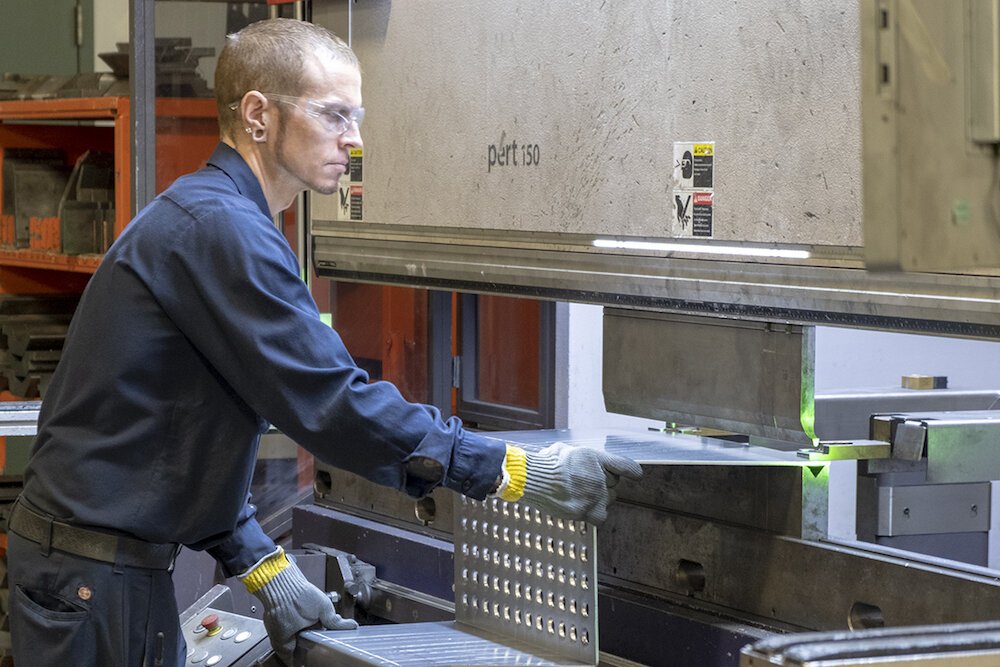
That experience includes showcasing their talents at SkillsUSA competitions, where students compete against their peers from around the state and across the country. This past school year, FWCS Career Academy students won 15 SkillsUSA state championships, and 14 of them went on to compete at the national level in Louisville. One FWCS student won a national championship, and seven placed in the top 10 in their respective industries.
McArdle stresses that students can have well-rounded high-school experiences while studying a trade.
“You can still be an athlete. You can still be president of your class. You can be a valedictorian or a salutatorian and come here, too,” she says. “We try to work with (students’ home high schools) because we don’t want to leave anybody out.”
Even students with college aspirations can benefit from learning a trade, too, McArdle says.
“Just because you come here, doesn’t mean that it’s what you’re going to be the rest of your life,” she explains. “Students see that if they come here, they get the skills, they get some entry-level experience, and they can work while they’re going to college if they want to do that.”
Schools like the Career Academy prepare students to be lifelong learners, which is exactly what employers like QuikCut are seeking in job candidates.
“That’s integral to them just being successful. Period,” Webb says. “If they get a head start by taking some classes at a community college or doing things at the FWCS Career Academy, it just accelerates their progression through the company and into positions—going into a team lead role or whatever it might be.”
Webb emphasizes the shift in skilled work; While the jobs may be perceived as simple and repetitive, technology plays an increasingly important role. Today’s employees who bring creativity and innovation along with their skills can move up the company ladder.
“(This career) is not, ‘If I go this route, it’s a dead-end job,’” Webb says. “It’s really what you make it and how you progress in the company.”
That’s a message Webb and others are trying to share with students, parents, educators, and anyone else who will listen.

“Our goal is to create a situation where everybody wins,” says Adam Welch, director of economic development at Greater Fort Wayne Inc. He’s been instrumental in the MadeByMe Coalition’s work. “Young people pursue rewarding careers in the skilled trades, businesses fill their job openings, and our community reaches its full economic potential.”



